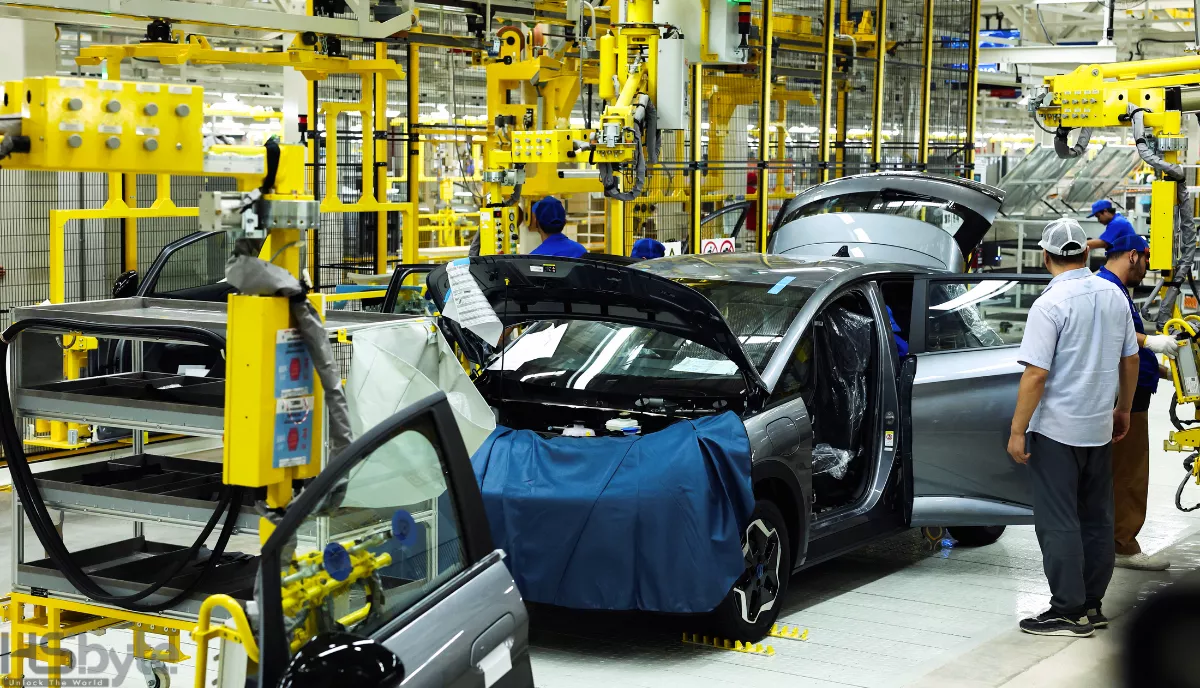
- Category: Business

- Share
Big tariffs will soon be imposed on electric vehicles (EVs) imported from China into the EU, after the majority of member states backed this proposal. The new import tariffs, which can reach up to 45%, are aimed at protecting the European car industry from being undermined by what the EU considers unfair Chinese state subsidies for their own electric vehicles. These tariffs will be in place for five years.
However, this decision could raise the cost of electric vehicles for consumers and risks triggering a trade war between the EU and China. The move has divided EU member states, with countries like France supporting the tariffs, while Germany, which relies heavily on the Chinese market for its auto exports, opposing them.
China has been heavily focusing on high-tech products like electric vehicles to help revive its slowing economy, with the EU being a key export market. The rapid growth of the Chinese car industry, with brands like BYD entering international markets, has led the EU to worry that its domestic manufacturers may struggle to compete with these lower-priced imports.
The European Commission recently determined import tariffs for different Chinese manufacturers based on the estimated level of state aid they received. The Commission announced varying duty rates for major Chinese EV brands such as SAIC, BYD, and Geely.
Despite the significant impact of the new tariffs, member states were not unanimous in their support. Germany was strongly opposed to the tariffs, reflecting the dependence of its car manufacturing industry on exports to China. German automaker Volkswagen even argued that the tariffs are “the wrong approach.” However, France, Italy, Greece, and Poland were among the countries that supported the new taxes.
SAIC, the owner of the MG brand, has indicated that it will maintain its electric vehicle prices for the rest of the year, despite the tariffs. Germany’s BDI industry association has urged both the EU and China to continue trade talks to avoid an escalating trade conflict.
The European Commission expressed its intention to work closely with China to explore an alternative solution to address the subsidies issue. It has emphasized the need to resolve the problem of what it calls “injurious subsidization” of Chinese electric vehicles.
Impact on Electric Vehicle Sales and Market Challenges
The electric vehicle market in the EU and UK has faced challenges recently. In August, EU registrations of battery-electric cars dropped by 43.9% compared to the previous year. Despite reaching a record high for new electric vehicle sales in the UK in September, most of these orders were driven by commercial deals and significant discounts from manufacturers.
The industry trade body, the Society of Motor Manufacturers and Traders (SMMT), has expressed concerns over the growth of the electric vehicle market. According to its chief executive Mike Hawes, there is apprehension that the market is not expanding fast enough to meet the mandated targets for electric vehicle sales. The UK government had initially planned to ban the sale of new petrol and diesel vehicles by 2030, but this was pushed to 2035, with the Labour Party pledging to revert to the original deadline if they come into power.
Electric vehicle manufacturers in the UK are currently required to meet ambitious sales targets as part of the Zero Emission Vehicle (ZEV) mandate. This mandate requires 22% of vehicles sold this year to be zero-emission, with that percentage rising to 80% by 2030 and 100% by 2035. Failing to meet these targets could result in fines of £15,000 per vehicle for manufacturers.
However, the car industry, including manufacturers like BMW, Ford, and Nissan, has warned that reaching these targets could be difficult under current conditions. Factors such as higher energy and raw material costs, rising interest rates, and a lack of charging infrastructure have contributed to making electric vehicles “stubbornly more expensive.” At present, the average price of an electric vehicle in the UK stands at around £48,000, which remains a barrier to mass consumer adoption.
Moreover, a lack of reliable charging infrastructure in the UK has led to lower consumer confidence in making the switch to electric vehicles, further complicating the challenges for manufacturers and policymakers alike.
You May Also Like


Predictable Revenue: How ValueBuilt Is Redefining Predictable Revenue for Modern Businesses

Luxury Yacht Hire In Sydney: Exclusive Waterfront Charters

Rising Oil Prices: Middle East Conflict’s Profound Impact

Electric Vehicle Import Tariffs: EU Imposes Powerful New Measures

Port Strikes Cause Major Shutdown, Sparking Global Trade Fear
Latest Update

Zelensky Biden Meeting Ignites Republican Outrage Amid Aid Talks

Wuthering Heights Film Casting: Controversy Sparks Debate

Will the US Presidential Election Shape the Future of Crypto?

War with Russia: Zelensky Sees Hope for Peace

Unpacking the ‘Dark Arts’ in Manchester City vs Arsenal Showdown

UNIFIL Post Breached: Israeli Tanks Escalate Tensions

Trump Demands Hamas Disarm Amid Brutal Gaza Crackdown

